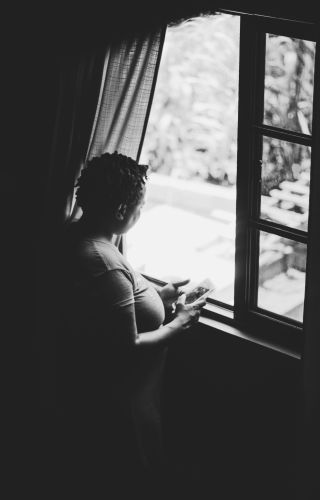Body Image
Caring for Children When They Experience Body-Shaming
How do we create safe environments for children of all sizes?
Posted December 18, 2023 Reviewed by Michelle Quirk
Key points
- We can help children be more confident to ignore, deflect, or reject people who use fat-shaming language.
- Comforting a child back to a state of well-being by staying connected will prevent feeling of loneliness.
- We don't have to fix the problem this very minute—first, we must offer comfort.

There are a few ways to help your child fight off the feelings that body-shaming produces. We can set specific and achievable goals to improve our health and be more confident to ignore, deflect, or reject people who use fat-shaming language. We can also make sure our children are safe at school. A recent study found that 85 percent of 1,555 children reported seeing a child with obesity being "verbally teased and victims of physical aggression." The study also found that "while most students reported willingness to help a friend with rapid weight changes who had been teased, many remain passive bystanders in these situations, leaving their friends to cope with these experiences on their own." The study raised this question: How do we empower ourselves and our children with words and actions to create safe environments for children of all sizes?
Self-Compassion
To have genuine compassion for our child, we must also have compassion for ourselves. Read this sentence again—To have genuine compassion for our child, we must also have compassion for ourselves. When we speak negatively about ourselves, have regrets, and keep score of our or another's behaviors, we are not practicing compassion for ourselves. I am sure you can think of other ways you have not been kind to yourself, not your own friend. Think about a time you were hurting. What did you do? What did you say to yourself? What kinds of words did you use? Were the words kind, helpful words you would use with a friend in a similar situation?
I know the idea of self-compassion is not new. However, we humans need to be reminded of it—a lot! The Dalai Lama has written many books about compassion. Almost every issue of Oprah has an article with a self-care or self-love theme. So we must practice often and be reminded to look to others for help or guidance.
Knowing the Right Thing to Say
Special care is needed to comfort and stop the hurting when you or your child is in emotional, spiritual, or physical pain. Sometimes though, we unwittingly increase our pain or our child's pain rather than provide comfort. Knowing the exact right thing to say or do when your child is hurting can be challenging. Also, the circumstance may be a trigger for our past hurts and discomfort, adding another layer of nuance to the situation. As we try to comfort our children, we may end up making things worse. We pull away or recoil. We may do nothing because we don't know how to help or don't want to make things worse.
What if, instead of trying to make things better and fix them, we just stopped and said to ourselves, "What do I need to feel loved right now?" Or we said to our child, "What can I do to love you best right now?" By asking this simple question, we are staying present with the pain and discomfort and acknowledging that something is wrong, something hurts. We don't have to fix the problem this very minute—first, we must offer comfort. This isn't easy to do. We want to solve it. We want to ease our pain and our child's pain. By asking how best to be loved during discomfort or difficulties, we are saying, "You deserve to be loved. You are worthy of love, no matter what is happening." We focus on their well-being, empowering them, and acknowledging their wisdom. We know that ultimately, they will understand what is best for themselves; if they don't, we can help solve the problem later.
Comforting a child or ourselves back to a state of well-being by staying connected will prevent that terrible feeling of loneliness and isolation. Once you ask the question, be prepared for not knowing how to answer it. And that is OK—posing the question opens a space for many answers. And the answer may change—and that is OK, too, especially if this is the first time you have asked this question of yourself or your child.
Establishing a space to care for your own and your child's well-being is essential to challenging conversations about changes in weight, health, body image, and sexuality. Be prepared for the answer to the question—it could be, "I need ice cream"; "I need a new toy"; or "I need to be alone"; or a combination of things. Following up on the answer to the question is vital to providing comfort and establishing trust.
References
Weight-Based Victimization Toward Overweight Adolescents: Observations and Reactions of Peers. November 2011. Journal of School Health 81(11):696–703. DOI:10.1111/j.1746-1561.2011.00646.x
Wolke D, Lereya ST. Long-term effects of bullying. Arch Dis Child. 2015 Sep;100(9):879–885. doi: 10.1136/archdischild-2014-306667. Epub 2015 Feb 10. PMID: 25670406; PMCID: PMC4552909.


